an excerpt from
Winter
by Sarah Remy
Copyright © 2014 by Sarah Remy and published here with her permission
Winter
A famous songwriter once said that the words of the prophets are written on subway walls.
He was right.
Not that I’m a big music buff anymore. Although sometimes I imagine I can still hear violins in the night, and the thump of drums through the ground will always make my fists clench. Because some things are hard to forget.
But I do know more than most people about prophets, and I spend a good part of the D.C. nights in the Metro, looking for their signs, whether they’re scrawled on the sides of trains, or scraped into the walls of tunnels. Or splattered across the ground in bloody streaks and prints.
Problem is, prophets aren’t the most coherent of souls even on the best of days, and you can trust me when I say those touched by the Sight have more bad days than good. Reading their intent is a bit like trying to make poetry out of Spaghetti Os.
Lucky for me, I love Spaghetti Os.
“Okay, Winter.” Spotlights made the big man’s shadow fall over the floor and across my hands. His words were knives in my head, made sharp by anger or frustration.
Considering the circumstances, I suspected it was his anger I felt. Brutal murder tends to rile even the most hardened of Capitol detectives.
“What’ve you got?”
I took the hot dog he passed me. The bun was warm. The sausage smelled of sweet mustard and onions. My mouth began to water. I peeled the paper away from one end, and indulged in a healthy bite.
“Two people,” I replied once my mouth was clear. “One dead.”
The detective’s name was Bran and he was mortal. He’d been sent from Brooklyn to help me, although he probably thought it was the other way around. He worked for my mother, and he kept me in hot dogs and murder. Together we’d solved more than a few usual cases and one or two not so ordinary crimes.
“Forensics gets paid to tell me that much.” He glowered at me under heavy brows. He had the ruggedly handsome sort of face women swoon over, and he knew how to work it to his advantage. He didn’t waste a smile on me. “What do you see?”
I took another bite of hot dog, scanning the crime scene. The east and west entrances of the platform were cordoned off with yellow cop tape. The aforementioned forensics team had finished snapping pictures, and were waving blue lights around. The coroner waited against the sloping tunnel wall, body bag at his feet.
“He’d do better with a grocery sack.”
“Winter.” This time the knives were sharp enough to make my eyes water. I didn’t need to turn my head to know Bran was scowling in my direction.
“Sorry.” I was. “But it seems a waste. You know. An entire corpse bag. For a skull.”
“You’ve finished the dog,” Bran pointed out, ice and daggers. “Pay up.”
I licked my fingers. I sighed.
“Like I said, two. The vic was killed here. The perp was large, strong, calculating. Not much on emotion. Separated her head from her body easily. Maybe in a single blow. Looks like a really long knife, maybe a rapier. Not a traditional sword. Thin blade. Old, thin blade. Got the video?” Ever since 9/11 the underground railways were consistently on camera.
Bran didn’t question my weapons analysis. He knew better.
“Transit’s working on it. She?” he asked.
We both looked at the skull. It gleamed white in the light. Clean of flesh and muscle, the skull was an ivory island in a sea of congealing blood.
I shrugged, and stuck my hands into the pockets of my Levis. “Yeah. She.”
Even if I wanted to, which I didn’t, I couldn’t have explained how I knew. Maybe it was the slowing drip of blood onto the rails, and in the blood, the repeating perfume of feminine sorrow.
“Human, then?” He’d softened a little.
“Looks like.”
“How do you explain the stripped bones? The lack of a body?”
“Even humans occasionally dabble in blood magic.”
“What about these?”
We squatted side by side, considering the footprints. They zagged in an unsteady trail along the platform, crossing the white warning line, and then zigging back again before they disappeared under the west string of tape. There they faded into the shadows beyond.
Small foot prints. Child-sized, I thought. And barefoot.
“Again, human,” I said, although I couldn’t be sure of much else. The blood belonged to the skull, and the footprints themselves were mute.
“You said two people, Winter. Perp strong enough to behead a vic with a rapier doesn’t wear size four shoes. Children wear size four shoes.”
“Or no shoes at all, as the case may be. Perp went that way.” I jerked a thumb over my shoulder, west. “Up the stairs and out.” I knew that because I’d seen forensics marking the streaks and smears. Normal streaks and smears, nothing so perfectly delicate and clear as the trail leading in the opposite direction.
“That makes three people.”
I shook my head, and then irritably pushed hair out of my eyes. I’d meant to have it cut before the leaves began to change. But fall had come late this year, and I’d forgotten.
“I can only scent two.”
Bran lifted his chin and stared off down the tunnel. He didn’t insult me by asking if I was sure. Behind us the coroner loaded the skull into the body bag, and started to tote it away. A cop in uniform began putting little white numbers down along the trail of blood.
I stood up, crumpling the hot dog wrapper in one hand, and followed the numbers. Whoever belonged to the footprints had a child-sized stride to go with the child-sized prints.
“How far do they go?” I peered across the tape and into the tunnel.
It was never really dark in the Metrorail underground. Utility lights kept the train tracks illuminated for safety’s sake. But the cops had turned their square of murder into a fluorescent blaze, and my eyes were having trouble adjusting to the curving shadows beyond the crime scene.
“They don’t,” replied Bran. “They stop just there.”
I squinted past the tape and saw that he was right. The platform east of the tape was littered with a small collection of dirt and trash. Ten feet of scuffed mud and dropped gum wrappers and Starbucks napkins, and then the walkway ended and there was nothing but tunnel.
“What do your magic blue lights say?”
The officer who’d been laying out numbers glanced my way, mouth tight. They didn’t like me, Bran’s cops. But most of them are used to my occasional appearances.
“What I said. No blood past the tape. No spatter, no prints.” He shifted a little, putting himself between me and Numbers Man, blocking the line of sight. Bran was fit for his age, corded with lean muscle. “So either we sat down and took time to wipe our feet clean before doubling back or we went down between the tracks.”
I glanced around his muscle at the blood on the floor. There was a lot of it. I looked at the small foot prints, and tried to think like a child. It wasn’t difficult.
“If I were you,” I said, “I’d send forensics farther down the tunnel.”
Bran sent one of his detectives out into the night for another hot dog and a soda. I would have preferred coffee to Coke but the meal was free so I didn’t complain. I ate my second dinner leaning against the tiled subway wall, watching as three of D.C.’s finest went over the edge of the platform and into the tunnel.
I knew someone had certainly sent out an order to kill the live tracks. Still, the three cops walked carefully, lights steady. They avoided the rails. I thought that was a very good plan.
Numbers Man somehow ended up in my space, slouched against my wall. He seemed perfectly engrossed in the small computer he held in one palm. He didn’t fool me. No one gets reception in the tunnels. Plus, all the tile and concrete made the Metro colder than Alaska in January, and the guy was sweating.
He was afraid of me. I could smell the sour nerves in the drop of perspiration under his collar. I’m not the sort who usually inspires that kind of unease, which meant he knew or guessed what I was.
Or, like the prophets whose graffiti dirtied the walls, he saw a little more of the world than made him comfortable, and couldn’t stop looking, no matter how much it scared him.
I twisted the cap off my Coke and took a swig. Across the tunnel I could see my reflection in a glassed-off billboard: a nondescript silhouette with a sharp nose, a boyish chin, and too much hair.
“Hey, kid.” Numbers Man sounded like fog in my head, bleak and insubstantial. “Don’t your parents care you spend nights hanging around police business?”
“I’m eighteen.” Which wasn’t exactly true, but would be in less than a month.
“You don’t belong here.”
I swallowed more Coke, and didn’t answer. He was right, in more ways than one, and I wasn’t about to argue. He was afraid of me, and he had a gun in a holster beneath his cheap leather coat. I could sneeze in his direction, and he’d have it out before he even realized what he was doing, and if he accidentally pulled the trigger then there’d be more blood on the floor.
I moved carefully away until I found Bran at the edge of the platform. The men with the blue lights had climbed up out of the muck, and were packing their wands away.
“Nothing,” Bran reported. “No blood, no prints at all, and it’s not exactly a clean floor down there. Even the rat turds leave prints. So unless our size four shoe flew -”
I shook my head. “No sorcery, I told you. I’d know.”
The detective shrugged. “No sorcery, then.” He glanced back at the drying gore. “But plenty of blood magic. Still your problem, Winter.” He was less sharp as he transitioned into work mode. The headache I’d been trying to ignore eased some.
“Yeah. I’ll look into it. Coffee Monday?” That gave me two days to stick my nose into the mess. Two days to come up with a solution that would satisfy the Capitol Police, the Feds, and the Lady. It’s what I do and why I’m still alive. “You’re buying.”
“Monday,” Bran said and walked away.
I don’t listen to music anymore, but I do own an iPod. These days, who doesn’t? I keep mine plugged into my ears whenever I’m on the move. Because the white noise I pipe through the machine mostly blocks out the buzz I don’t want in my head, and because no one bothers a kid wearing headphones.
It’s almost as effective as a Glamour.
I had the ear-buds firmly in place as I ducked under the police tape and emerged into the night, so whatever the Transit Officer guarding the top of the escalator shouted in my direction went unheard.
I slipped through a small crowd of gawkers made up mostly of street people looking for something to take their mind off the cold. Overhead the moon was a chewed fingernail in a sky filling with clouds. The air smelled of rain or snow.
I tossed my empty Coke can into a recycling barrel, and hunched my shoulders against the chill, walking fast, heading east toward L’Enfant Plaza. I didn’t have the night vision common in the first of my kind, but I could scent better than your average flop-eared bloodhound, and I had some hope that I might pick up traces of our murder victim’s blood on the breeze.
I didn’t have any luck. Which was okay, because I didn’t really expect to. Still, I’m always hoping for a break.
I cut across the street in front L’Enfant Hotel. Lamplight made the red brick cobbles slick. Beyond the Plaza the Washington Monument pierced the sky, brighter than the moon. The Washington Monument is my favorite piece of the Capitol. The obelisk is a spear in the heart of God, and if I lean against it I can feel the stones breathing in and out.
I took the old steps down into the Plaza Metro Station. If you’ve never been underground at L’Enfant, you’ve missed out. The vaulted ceilings are a miracle of engineering, and the reek of humanity is beyond anything you’ve experienced before. The huge station smells like piss and sushi and cheap perfume and warm cookies and train oil and grief and earth and damp stone and expensive dye and secrets.
Most importantly to me, it smells like home.
L’Enfant wasn’t yet closed for the night, but it was mostly empty. Late commuters slouched on benches, most of them too tired or drunk to pay much mind to a skinny boy in jeans and an old leather jacket.
I whistled my way along the platform, then ducked behind a three-sided advertisement for McDonald’s. When I hopped off the tile and onto the Green Line nobody raised a peep.
The D.C. Metro tunnels are nothing like the rambling underground train tracks you find in New York City. First off, the Metro’s a lot newer. And smaller. You won’t find any abandoned stations or forgotten architectural marvels buried beneath the Capitol.
And then there’s the third rail running between all the tracks. One slip, one misstep, and you’re fried like an egg. That unpleasant possibility, plus an overabundance of cameras, keeps the average track walker out of the tunnels.
I’m not the average track walker. I know my little piece of the Green Line between L’Enfant and Union Station better than most people know the way to their own fridge. I’m unusually surefooted. And although it’s possible a train could sneak up on me if I were distracted, it’s very unlikely.
I don’t indulge in distractions. I’ve got too much to lose.
Still, when I’m alone, I have to keep away from the round spy lenses in the ceiling. I have to scrape the knuckles of one hand on the curve of the tunnel wall. I take the headphones out of my ears, and close my eyes because in the false twilight I’m much better deaf and blind.
So I didn’t see the mouse when she skittered out of the shadows. But I knew she was there before she’d climbed my pant leg and settled on my shoulder.
“What was it?”
Gabby is an elder, one of the original aes si. Her voice is the only sound in this city of man that doesn’t make me want to press my hands against my ears and weep. This is a very good thing, because she was sent to the Capitol as my chaperone, and she takes the job seriously.
She also likes to chatter. Which isn’t really her fault.
“Murder.”
I paced carefully down the tunnel, counting strides. There was a break in the shadows as we passed Penn. The station was closed, but the emergency lights pricked the backs of my eyelids. Then we crossed back into the dim tunnel.
“Sorcery?”
“No.”
The mouse exhaled in relief. Her paws were busy in my hair, grooming. Another thing she couldn’t help, and another reason I needed to get my hair cut sooner rather than later.
“Nothing to bother Himself about, then.”
“I didn’t say that.”
Her paws stilled. Her tail twitched against my neck. “Tell me.”
I considered. In the near distance I could smell Chinatown, which would also be closed. My stomach rumbled. Two hot dogs and I was still hungry. I wanted sushi. Or donuts. And that coffee, because it was going to be a long night, and already it was almost dawn.
“What did Lolo bring in for breakfast?”
“Winter!” She nipped my ear. Most of the time Gabby doesn’t remember she isn’t really a mouse. I think she doesn’t want to mourn the life she lost. It’s a less painful to forget a wound than to keep poking at it.
“Blood magic,” I admitted. “Gleaming skull, no body. Lots of nasty smelling fluids.”
The mouse made a hissing sound. Gabby had once helped Himself hunt down the most desperate of monsters: an aes si who practiced blood magic on our own kind.
“Mortal,” I said. “And whatever he was trying for didn’t work. It smelled off, interrupted.”
Gabby pressed her head against my throat.
“And still,” she said, tinged with sorrow, “it was murder.”
I walked the rest of the way home with my eyes open.
Richard met us on the tracks just past Judiciary Square. He held an old oil lamp in one hand, the kind you usually find in antique shops or on the mantle of fancy houses. A flame danced in the glass chimney, and kerosene shown orange through the beveled pot.
“Have we work?” he asked, lifting the lamp over the tracks to guide us.
“After I eat,” I promised.
“Are you never full?”
“It’s breakfast time.”
Richard ignored my wounded glare. His delicate features remained impassive in the flickering light. The carefully knotted cravat at his throat looked crisp and clean, and the green velvet coat he’d stolen from the Smithsonian was dust free. I suspected his trousers and lace up boots were also museum relics.
Just before Union Station Richard turned sharply right. He let me hold his lamp as he unlocked a grate in the tunnel wall with the key he kept on a chain around his neck. I brushed past him, waiting on the steps as he locked the gate again behind us. Richard took the light back and led the way forward as we descended beneath the track.
“He’s been worried,” Gabby cautioned.
“Not worried,” Richard returned. “Frustrated. The television’s gone off again. Lolo’s incessant whining is giving me a migraine.”
Richard, even when he wasn’t worried, sounded like a small bird beating its wings against a high wind. His dark curls were tussled, probably because he’d been pulling on them in aggravation.
“Leave Lolo to me.”
Fifteen feet into the ground the stair ended against a pair of steel doors. I punched our code into the grimy keypad. There was a faint quiver as the lock released. A late model fish eye watched us from the ceiling, but because we were with Richard no one at the other end noticed our passing.
According to Richard our home beneath the Metro was once a side track for the Transit Authority’s money train. Then technology made the money train mostly obsolete, and the tunnel was turned into a dumping ground for old train parts, stripped escalators, and pipe. The passageway is maybe as long as a football field, and not much wider than a subway car.
Lolo says it’s like living in the belly of a snake.
Richard found the tunnel by mistake and saw possibilities in the junk heap. By the time I trailed him to his lair, he’d spent more than a year cleaning and sorting, and he’d made the place almost livable.
The T.A. cut off electricity to the passage in the 1980s. Richard managed to hijack a piece of the main line. Now we have two strings of bare bulbs running the length of the ceiling and enough extra juice to power a microwave, a mini fridge, and Lolo’s precious television.
I don’t think the place was ever heated. We’d hung rugs and blankets from the ceiling, dividing the corridor into rooms, cutting the draft as best we could.
And you’d be surprised how easy it is to grow a collection of abandoned mattresses. The entire floor of Lolo’s room is covered with mismatched box springs and pillow tops. He’s a restless sleeper.
That night the abandoned money line sparkled. Every one of Richard’s kerosene lamps were lit, placed here and there on the floor between the old tracks, or in niches on the wall. It was a fire hazard of epic proportions, but it was the most beautiful thing I’d seen all day, Washington Monument included.
“You said the television was out.” I glanced sideways at Richard. “You didn’t say we’d lost power entirely.”
“East Grid’s shut down.” He shrugged. “It’s out of my hands.”
“There’s been a murder,” Gabby explained. She clamored down my back, and sat on the floor between Richard’s boots. “On the tracks.”
“Not on the tracks, exactly. Did you crack the vent?” I asked. The burning kerosene used to make me dizzy and sick but I’d grown used to it. Still, I didn’t intend to die of suffocation on a secondhand mattress.
Richard smiled a little, nodding. The back of the tunnel is his provenance. Most of the time the rest of us aren’t willing to brave the accumulation of junk he’s sorted into ceiling-high piles.
“Lolo!” I shucked off my coat, and hung it on the rack Richard had fashioned out of copper pipe and old train hitches. “What’s breakfast?” I thought I could smell fried rice through the clouds of kerosene.
We picked our way past the lamps, and I pushed back a pair of heavy velvet curtains we used to divide the entry from our ‘kitchen’.
“Yum.” I inhaled, greedy. “You hit Mr. Shu’s.”
Lolo, sitting hunched over the monstrous creation Richard called a dining room table, refused to look up. An especially elaborate lamp burned next to a pile of bulging takeout bags.
“Uh oh.” I hooked a stool with my foot and settled down to nosh. Richard shuffled paper plates into a circle around the table, then followed suit. “Which rerun are we missing this morning?”
Lolo kept his eyes on his plate as I shared out noodles and ginger beef. Gabby wound her way up a table leg, and stuck her nose into a serving of pineapple chicken.
“Lolo. You know I can’t hear what you’re saying unless you actually spit it out.”
He slouched almost into the fried rice. “James Bond marathon on local. I was halfway through Goldfinger. And Richard won’t fix it.”
Where Richard’s a desperate bird in a storm, Lolo’s so cold he’s almost frostbite. You wouldn’t think it, because he’s generally all smiles and wise-ass. For a twelve year old human, he’s an excellent fraud.
“Richard can’t do anything about it until the T.A. decides to throw the switch back on. And you should have been asleep four hours ago. The sun’s almost up.”
Lolo sells papers to the morning rush hour. He stands on a curb in Dupont Circle, long dreads corralled under a baseball cap, and plays romantic ballads on his battered harmonica when he isn’t hawking the paper. In a world where every other person is connected to a news app, Lolo still manages to make plenty of money selling words printed on paper.
His boss loves him, and manages to ignore child labor laws so long as Lolo keeps bringing in fistfuls of dough.
“If I’d gone to sleep you’d be waking me up now. And then I’d be all sick-like and no good to you.” He finally met my stare. “Right?”
“Probably,” I admitted. “But you have to sleep sometime, Lolo. Eat that broccoli.”
“Broccoli tastes like fart.” He took a helping anyway. “What is it this time? Drug dealers, gang snuff or sorcery?”
“None of the above.”
Richard paused, fork suspended, noodles dangling. “Sluagh?”
I wasn’t sure I liked his eager anticipation. Gabby muttered wordless mousy syllables under her breath.
“No. Perfectly mortal blood magic gone off.” I slid from my seat in search of the coffee carafe, and then swore in surprise when the tunnel lights flashed abruptly on. “That was quick.”
Lolo craned his neck, trying to see past curtains to the clock in my room. “They must have finished clean up. Ninety minutes until the station opens. We going?”
“Grab your things. We’re going.”
We walked the Metro back to the crime scene. With Richard at my side I didn’t have to worry about being seen, and when the trains aren’t running the tunnels are the easiest way to get around.
Gabby ran ahead, flitting from track to wall. Lolo walked in the middle, head cocked, listening. Richard and I made up the tail. He tapped the watch fob on his belt with a gloved hand, but he didn’t speak so I couldn’t guess what he was thinking.
Bran’s team was efficient. The police tape was gone, and the walls and floor gleamed, an unusually clean patch in the grimy underground. The Sunday morning commuters would stare and wonder, then board their trains and forget.
Gabby jumped onto the platform and snuffled about. Richard hoisted himself after. Lolo kept walking east down the tracks.
I didn’t have to snuffle. The stink of blood and violence lodged in the back of my throat.
“You are correct,” the aes si confirmed. “A waste of life but nothing to do with us.”
“Maybe.”
I stood below the platform and turned in a slow circle, carefully avoiding the third rail, trying to decide what it was that made the nape of my neck twitch.
Richard was rooting around at the foot of the frozen escalator. He straightened, and held something out on his palm. “Rock salt.”
“Probably came off some tourist’s pretzel,” Lolo guessed.
Richard walked to the edge of the floor, and held his hand over the tracks so I could see. The rock salt was very white against his black glove. Thick chunks, too big to be part of someone’s lunch. And mixed in with the salt, shards of polished ivory.
“Bone,” I confirmed. “Human bone. He cast a Summoning. Or tried to.”
“Still nothing to do with us,” Gabby said.
I stuffed my hands in my pockets, and pursed my lips. “Do you suppose he cut down our vic before or after he cast the circle?”
“I thought you said it was blood magic.” Richard closed his fingers over the salt and bone. “Blood magic, blood comes first.”
“Smells like blood magic,” I agreed. “Looked like blood magic. But -”
“Win,” Lolo interrupted from down the tracks. “You’d better come see this.”
1. Girl In The Wall
Aine opened her eyes and remembered dying.
“Loc na mhuice! Where did she come from?”
There had been pain and confusion and then terror.
“Summoner’s circle, most likely.”
“Impossible! She wasn’t here an hour ago. She wasn’t here five minutes ago!”
The world had tilted, slid sideways from under her feet. Pressure, cold, like bands of ice around her heart, and then a struggle to breathe –
“She’s naked.”
“Lolo, for God’s sake! Stop staring. Gabby…”
– and falling through darkness, and she’d known she was dying, and she had tried to scream –
“Can you reach her?”
“Dude, she’s totally naked.”
– and then her mouth had filled with dirt, and panic had dissolved away to –
“Christ, has she melted into the wall?”
– nothing.
She couldn’t remember. Her eyes wouldn’t focus. Everything was too bright, blurry. Her back hurt, and her feet. She tried to turn her head, to move away from the pain, but she couldn’t. She cried out in fear.
“Hush, child. Don’t move.”
The warning came from somewhere past her shoulder. Aine blinked tears from her eyes.
“Gabby!” Another voice, much louder and farther away.
“Hush, Winter. Just hush.”
Tiny pricks ran along Aine’s shoulder and across her arm. She shivered, and the skin of her back pulled. She lifted a hand to muffle her cry, and was dully surprised when she managed to stuff her knuckles in her mouth. Only a moment ago she’d barely had the strength to open her eyes.
“The wall’s melted into her, not the other way around. It has quite a bit of her hair. And . . . stay still, lass . . . I’m afraid some of her flesh.”
The air went abruptly still, and Aine realized she had been hearing other sounds. Scrapes and scuffles and breathing: people. But surely she was dead. Had they come to pull her from her grave?
“Stop,” she pleaded. “You’re hurting me.”
Only, her mouth was still blocked by her fingers, and she couldn’t quite make the words fit together.
“I’m sorry, princess. Hold tight. Just give us a minute. We’re here to help.”
He was mistaken, she wasn’t a princess. She was dead.
But she couldn’t force words past her hand again, so she bit down on her knuckles instead.
“Richard, give me a boost. Gabby, how much of -”
The person on Aine’s shoulder made a tsking noise.
“Right, then.” The scuffling sounds grew louder. “Let’s see what we’ve got. Richard, can’t you keep steady?”
Suddenly Aine’s ears popped. Her gaze cleared, and she was staring into a pair of somber grey eyes.
The grey eyes were framed by the longest lashes Aine had ever seen. Lashes too pretty for even the most beautiful girl, and yet they belonged to a boy with a wide mouth and dirt on his chin.
“Hello,” said the boy. “You’re doing fine. Stay still a moment longer and we’ll have you out.”
The boy rocked just the smallest bit as though the ground was unsteady beneath his feet. He smiled sweetly at Aine. There was a bronze blade in his hand. She looked at the knife and then back at his smile.
“Steady, Richard,” he said again. He reached around Aine like an embrace.
The boy’s coat was soft, and he was warm. His breath tickled Aine’s ear as he spoke quietly. “How bad is it?”
“Mostly her hair. She has a lot of hair, and it’s all in the stone. You’ll have to hack it off, Winter.”
“Hair will grow back. Won’t it, princess? What about the rest?”
“Bits of the skin on her shoulder blades and her heels. Winter, I think-”
The boy moved again. He wasn’t smiling any longer, but something about his steady gaze made Aine almost forget she’d died.
“It’s not so bad as it sounds,” he said. “We’ll get through it.” He took her hand gently from her mouth. Her knuckles were bleeding where she’d bit through. “Cup your fingers.”
“Aye?”
“Curl your fingers.”
Baffled and numb, Aine curled her fingers.
“Winter, it’s five o’clock.”
“Thank you, Lolo,” said the boy. “Please do let us know if you hear a train.”
He set something in Aine’s palms.
It was a large mouse, mostly white except for a pink nose and soft brown eyes. But that was wrong, Aine thought, the eyes were wrong.
“This is Gabby,” the boy said. “Keep your eyes on Gabby, and we’ll have you out in a second. Ready, Richard?”
“Yes.”
The mouse twitched its whiskers, and gripped Aine’s thumb with one tiny paw.
“Think of something pleasant,” it said gently. “I find that often helps.”
Aine was so startled by the talking mouse she almost didn’t notice when the boy embraced her again. Her scalp pulled. She understood that he was cutting her hair, parting the strands with the edge of his bronze knife.
She had a lot of hair. She remembered that it often tangled in the trees when she forgot to braid it back. She remembered that it took a long time to wash it clean.
But the boy was quick with his knife, and after only a few heartbeats the last strands parted, and her head was free. She gasped.
“That was the easy bit,” the boy warned. “Look at Gabby’s nose, now, and think of lollipops.”
Aine didn’t know what ‘lollipops’ was but she did as he said, pinning her gaze to the pink tip of the mouse’s nose. She tried not to notice the boy was holding his breath. She could feel his heart thumping against her own, through the shirt he wore beneath his coat.
He must be concentrating very hard, she thought distantly, her eyes on the mouse.
Then he moved, and Aine’s back seemed to catch fire. She gasped and jerked forward; she couldn’t help it.
“Steady.” He was back in front of her, brow pressed against her own. “Steady. All right?”
She nodded, although she wasn’t sure. The world was beginning to tilt again. She was afraid she’d dropped the mouse. Her back had gone from flame to ice. She couldn’t feel anything at all.
“I have to do the rest now,” said the boy. “Your feet. Ready, princess?”
“Aye,” Aine tried to say, but the word seemed stuck in the back of her throat. Her head was spinning.
The boy’s mouth moved, but she couldn’t hear him. Then the darkness came back, and she died again.
“She’s losing a lot of blood.”
“I can’t do anything about it till we get home. Just walk faster.”
“Certainly. Shall I break into a jog and risk electrocuting us both?”
“Faster, Richard. Or give her back to me.”
“You’ve got her blood all over you, and you’re paler than a ghost. If you faint I can’t carry you both, and it’s not you I’d leave behind.”
“Póg mo thóin.”
“And yours, I’m sure.”
Aine forced her eyes open. The world had stopped spinning but now it rocked past in bits and flashes of light. She was wrapped in something warm and heavy, and she thought she was sweating, but she still couldn’t feel anything other than the tips of her fingers. They were cold.
“You’re very rude,” she said, and was surprised to hear her own voice, clear and steady past numb lips.
There was a new face floating above her, a long face wearing a tight expression. A second boy, nearly as lovely as the first, and the white mouse rode on his head, nested between the waves of his dark hair.
He looked down at her, surprised.
“Yes, he is. Almost all the time, but right now in particular.” He turned, shifting. Aine realized with a start that she was cradled in his arms. “Winter, your mystery girl is awake. And it appears she understands your barbaric curses.”
“Don’t stop, Richard. Keep walking!”
“I haven’t stopped.”
“Children!” scolded the mouse. “There’s no need for -”
“Train!”
The boy carrying Aine swerved suddenly to one side.
“Can you stand?”
Aine didn’t know. She nodded anyway.
The boy called Richard set her down as though she was made of glass and he feared she would break. The nerves on the bottoms of her feet immediately flared back to life. Her knees almost buckled.
“Press against the wall,” Richard said. “Tight as you can.” He put his arm around her shoulders, steadying. She winced at the pressure, but the urgency on his face had her doing as he asked.
The awakening pain cleared her head of shock and the haze from her vision.
They were underground, she realized. In a narrow tunnel of some sort, or a deep cave. The walls were made of stone. On the domed ceiling long boxes flickered, casting a dim light.
The ground beneath her feet began to vibrate.
She thought she heard a growing rumble, as though the earth was quaking.
The sound intensified all at once, becoming a roar, and Aine stiffened in alarm.
She turned. “What is a ‘train’?”
Richard answered but she couldn’t hear him. The passageway was filling with new light, and she could see now that it was indeed a tunnel. Down the center of the floor ran three endless iron bars.
Aine couldn’t help herself. She flinched away from Richard. The monster rushing down the tunnel had stopped roaring and begun screaming. A wind lifted what was left of her hair around her ears, and blowing dust stung her eyes.
She tottered, swaying over the iron road.
Richard grabbed her elbow just as a second body flung itself across the tunnel and pinned Aine against the wall.
Light blazed up. The monster passed in a flash, a giant snake as high as the ceiling and segmented into many long pieces. It hissed as it flew by, and sparks burst along its belly as it streamed away.
It took no notice at all of Aine and her companions.
The monster disappeared as quickly as it had come, leaving only a fading vibration as evidence of its passing.
“That,” said the boy with the grey eyes as he stepped carefully away from Aine and the wall, “is a train.”
He scooped her up and strode down the passage. Richard paced alongside, the mouse still riding in his hair. A third person walked along behind them, humming quietly.
“It’s only Lolo,” the boy said when she tried to see. “He’s not harmless, but he only bites if you steal the remote. Stop squirming, you’re worse than a bag of cats.”
Aine stilled. “What purpose would there be in the bagging of cats?”
His lips curled very slightly. “You’d be surprised.”
Aine found she liked his smile. “What is your name?”
He paused. Aine saw that they had reached a gate in the tunnel wall. Beyond the gate loomed a dark hole. Richard fumbled at the latch, then pushed the gate open.
“Winter.”
“Geimhreadh,” Aine translated. “It suits you.”
“Winter,” he repeated as Richard retrieved a lantern from beyond the gate, and lighted it with a long match. “In the English. We don’t speak ‘barbarian’ here.”
Aine frowned doubtfully. Until that moment she had been too frightened to notice. “The dead speak only English? Where is the sense in that?”
Winter’s eyes widened, and he started to speak, but Aine interrupted him.
“Put me down!”
“Beg pardon?”
“I’ve died and I’ve been flayed.” Aine pointed at the steep stairway illuminated by Richard’s lantern. “I’ve no desire to have my skull broken as well. Put me down.”
She felt his chest swell as he sighed, but he did as she asked.
“Are you certain?”
“Aye.” The pain in her feet had dulled to a fierce throbbing.
“She has a point,” said Richard, lifting the lantern high. “Remember the time Lolo tripped on his shoelaces?”
“I was out of commission for more than a week,” Lolo agreed from somewhere past the gate.
“Very well.” Winter snaked his arm around her waist. “Lean on me and go carefully.”
She thought she heard the shadowy Lolo snicker. Remembering that she wore nothing more than a borrowed coat, she blushed, and was glad of the dim light.
There were twenty-five steps. Aine counted each as she made her way deeper into the earth. She could smell damp soil, and smoke, and the ever present-iron.
By the time they reached the bottom of the stairway Aine was grateful of Winter’s support. More than once he’d caught her as she slipped. She knew now that he must be far stronger than his slight form implied.
The last step butted up against a set of large doors. Richard slipped past Winter, and threw the doors open in a sweeping gesture. The mouse on his shoulder chittered.
“Welcome,” Richard said with obvious pride, “to our home.”
Aine sucked on her tongue to keep her jaw from dropping. She hadn’t expected anything so luxurious as her mother’s rooms, of course, but she had supposed that even in the afterlife one was allowed a chair or three.
Instead, the floor was scattered with stained cushions, stacks of books, and pieces of discarded clothing. An entire army of lanterns similar to the one in Richard’s hand waited in various positions against the wall. Faded and dingy tapestries hung from the ceiling in an obvious attempt to divide what appeared to be one very narrow cavern into several spaces.
And straight through the middle of the cavern ran the iron road. Aine eyed it with hatred.
“Don’t worry. It isn’t live. They cut the cord years ago.”
Aine turned. This time she couldn’t help herself. Her jaw fell.
“What manner of beast are you wearing?”
Lolo, for Lolo he must be, grinned. “It’s a buffalo vest. Antique. I dyed it myself. The customers love it. Purple’s my color.”
“Lolo is our resident huckster,” Winter said. “And he’s late for work.”
“Not yet. I’ve got ten minutes. Richard, will you check and see if the TV is back up?”
“Richard is going to help me,” said Winter. “Get ready for work before I’m forced to beat you. Richard, kitchen or mattress?”
“Kitchen. The light’s better. And we’ll need hot water.”
Winter made as if to lift Aine once more, but she stopped him with a look.
“I can walk.” She held the coat tightly closed with one hand. “Show me the way.” And then, after a pause: “Would you really beat the child?”
“Lolo’s twelve,” Richard said. He crooked his elbow and waited. Aine set her fingers on his gloved wrist. “And Winter never beats anyone smaller than himself.”
“I’ll be thirteen in December.” Lolo almost danced at Richard’s other side. He had beautiful dark skin, and long hair, worn in warrior’s braids and adorned with colorful beads. “And pretty soon I’ll be as tall as Winter. But he still won’t beat me. I’m important. Gabby says so.”
Aine wasn’t one to argue with the wisdom of a talking mouse, so she smiled and nodded. She tried not to limp as Richard lead her around cushions to a faded green curtain.
“This is the kitchen.” Lolo shoved the curtain back, revealing a small room. “That blanket, there, beyond the fridge, that’s the door to my room.”
“Where you should be right now,” growled Winter. “Preparing for work.”
Lolo laughed and trotted away, beads clicking.
“On the table, I think,” Winter said. “Richard, hot water?”
The kitchen table was large and round and made of misshapen pieces of metal. Aine thought it looked as though it had been hammered together by a drunken smith. Richard set his lantern at the very center, and blew out the wick.
“We lost power, earlier,” he explained, tilting his chin up at the ceiling. A string of softly glowing glass orbs ran away beyond the curtains, shedding a strange yellow light on the room.
The mouse jumped from Richard’s shoulder to the table.
“Perfectly safe,” she chirruped, obviously reading the indecision on Aine’s face. “One grows used to the tracks, but Richard would never purposefully cause an old woman harm.”
“Iron free,” Winter translated. “Richard works mostly with gold and tin and a fair bit of copper. Up you go, princess.” He picked her up, and set her gently onto the table. “Let’s take a look at those feet.”
“My name is Aine. And although my mother resides at Court, I’ve not a drop of royal blood in my veins. Certainly I’m no princess.”
Winter was bent over her feet, mouth set. The brush of his fingers against the arch of her left foot sent her shivering, and not entirely in pain.
“Water’s boiling.” Richard stepped back around the table. Aine noticed for the first time how very tall he was, and bone thin. His shoulders were sharp under his velvet coat. Around his neck he wore a long gold chain adorned with several keys and a tiny looking glass.
“See if you can find Aine some clothes,” said Winter, thumb pressing against her heel. “Lolo’s a likely fit, if you can find anything clean.”
“Nothing furry,” Aine burst out, then stopped herself, abashed. “Please.”
Richard bowed from the waist, then disappeared behind one of the many curtains.
“Surely the dead can’t be picky about fashion,” Winter murmured. He lifted his gaze to her own. “The flesh I cut from your feet is new and pink, soft as a child’s. You heal with remarkable speed, princess.”
“Aine.”
He hadn’t released her left foot. The shivers coursing through her body were definitely prickles of pleasure.
“Aine,” he repeated. The grey in his eyes seemed to deepen. “Are you always this resilient?”
“My mother serves the Queen at Court,” repeated Aine, in case he had misunderstood the first time. “Our family enjoys Gloriana’s favor.”
Gabby squeaked loudly, startling Aine, who had forgotten the mouse entirely.
“Interesting.” Winter bent even closer. The soft light from the ceiling caught on the lobes of his ears, glittering on twin topaz stones, big as grapes. “Gloriana, you say?”
“Aye, of course.” Across the tiny room on a small stove a glass carafe of water had begun to boil and hiss. Aine pointed a finger.
“Your water,” she cautioned.
Winter started, and turned away to tend the stove. Richard burst back through the curtains. He held a bundle of clothing in his arms, and carried a roll of linen bandages stuck under his chin. The heels of his boots struck a rhythm on the floor.
Lolo trailed after the older boy, whistling softly. He’d shed his atrocious vest, and wore instead a burlap apron around his neck and a tweed cap on his head.
Richard deposited his bundle on the table next to Aine. Lolo fiddled with the cap on his heed, then bent to fuss with the strings on his very red shoes. Winter turned from the stove, carafe in hand, and stumbled over Lolo with a startled shout.
Lolo fell all the way over onto his knees. The carafe went up into the air, scattering hot water. Richard yelped as drops spattered his coat.
Winter staggered. He fetched up against the table.
The carafe hit the ground. It broke into several large pieces.
For two heartbeats there was silence.
Then Winter spoke in a precise, flat tone.
“Lolo. Why are you lurking about in my home when it is now surely well after morning rush? Your welcome here is a privilege. Don’t take it for granted.”
Cheeks bright pink, Lolo began gathering up pieces of glass. “I’m sorry, Win.”
Winter was as white as Lolo was rosy. Aine imagined she could feel fury rolling off him in waves.
“Leave the glass, Lolo. Just go.”
Lolo stood, chin pressed to chest, face hidden by the brim of his hat.
“Sorry,” he said again. Hands in the pockets of his burlap apron, he ducked out of the kitchen.
“That was uncalled for,” said Richard when Lolo was gone.
Winter’s beautiful mouth was pressed into a thin line. “He needs to remember to be careful. If he forgets the simplest cautions here at home, how can I be sure he’ll remember when it matters most?”
“Has your famous nose stopped working, then? Christ, Win, the kid never washes. Even I can smell him coming half a block away. If you’re so rattled by something as simple as a pretty girl, how do we know you’ll keep cool when it matters most?”
Winter gave Richard a frozen stare, and then strode from the room. Gabby sprang from the table and dashed after, pink tail held low. A dirty white tapestry adorned with tiny purple flowers flapped open and shut as they passed.
“I don’t understand,” said Aine once the curtain had stilled. “It was only bad luck. Wasn’t it?”
Richard shook his head. “We embarrassed him. Winter doesn’t do embarrassment particularly well. He’s sensitive about certain things.”
“Certain things?”
Avoiding the shards of glass, Richard retrieved a small bowl from a drawer under the stove. He filled it with water from a clay jar.
“I’m afraid cold will have to do for now.” He dug a clean rag from the bundle on the table, and dipped it in the water.
“Winter’s deaf, you see,” explained Richard. “He pretends so well people often don’t notice. He prefers it that way.”
“Pretends?” Aine repeated, shocked. “I spoke to him. He answered. He heard me.”
“Oh, he can hear your voice well enough. Voices, nothing else. Lift your foot, just there. This might sting, you’re rather covered in grime.” He dabbed at her foot, gently and then with more strength. “He hears your voice in his head, you see, when you speak. Voices, loud or soft, whisper or shout. Winter’s deaf, alright, but I think his world must be unbearably loud.”
Aine wrapped the coat she wore more tightly around her chest. In spite of the tapestries she thought she felt a draft.
“Don’t let it frighten you.”
“Why should I be frightened?” Aine scoffed. “Such talents are rare even at Court, but not entirely unheard of.”
Richard smiled sadly. “Talent, is it? Well, Winter tends to surround himself with talented people. It appears you’ll fit right in.”
He wound a bandage around Aine’s right foot, then around her left.
“If only to keep you clean. Get dressed and then we’ll see about your back. Whistle when you’re decent.”
He left her alone. Aine huddled beneath Winter’s coat, trying not to shiver. Without Richard’s pleasant chatter the room seemed very quiet. But if she held her breath she could hear a low hum. From deeper into the cavern came a steady tick, as if from a clock or metronome, and a muffled bang.
She thought she could hear the iron road pulsing beyond the curtains. And if she closed her eyes and concentrated she could just pick out the snap of Richard’s boot heels in the distance.
What would it be like, she wondered, to stumble through every day without the melodies and harmonies of life to guide you?
Shivering, Aine wriggled off the table, and sorted through the pile of clothing. Lolo’s tastes seemed to run to color and texture. Aine picked out a knitted sweater the exact hue of spring grass and a pair of grey trousers. Underneath the trousers she discovered a pair of short, thick stockings.
She had to roll the cuffs of the trousers, and the sweater threatened to slip down her shoulders. Neither piece was as clean as she had dared hope, but at least she was covered, and almost warm. She pulled the stockings inch by inch over her bandaged feet, and heaved a sigh of relief when her shivering eased.
Whistle, Richard had said, as though she wore a reed pipe on her belt like a simple shepherd.
Resigned, Aine summoned courage. She lifted her chin and left the kitchen.
When Aine was very young, before she’d grown out of braids and into petticoats, she would spend her days on her mother’s knee, on the dais below Gloriana’s throne, and listen to the Queen’s handmaidens as they gossiped and told tales.
One of her mother’s closest friends, a cheerful old crone who preferred to be called Nan, often talked of the great caves beneath Lough Gur, and of the cold, dark maze that would eventually spit onto stony mortal soil any Fay so unlucky as to displease the Queen.
Nan would cackle as she embroidered primrose and tulips onto a pair of Gloriana’s gloves or across the edges of a royal gown.
“The tunnels below Lough Gur often eat a fool to the bones before he finds escape, if he finds escape,” Nan claimed. She rolled her eyes at young Aine until the girl squealed. “Just remember, child, we are a jealous folk, loathe to part with our own.”
Aine, squirming on her mother’s knee, would look away from Nan’s sharp teeth and up across the dais at Gloriana. Then the Queen, always attuned to the nuances of her Court, would bestow upon her a smile of such reassurance that Aine knew she need never fear Lough Gur’s unforgiving maze.
That maze was meant as punishment for the living, not the dead.
“Only fools and traitors are sent to the caves,” she reminded herself now. “And I was raised to be neither.”
She had to bite her tongue to keep from trembling, but she forced herself to walk down the passage alongside the iron road. Each time the tunnel was interrupted by a tapestry she pushed the fabric aside and continued on.
Aine could no longer hear Richard’s footsteps, but the ticking sound grew as she progressed.
She found Lolo’s room by the purple pelt abandoned all in a heap. She couldn’t see the floor beneath sagging cushions. Another square box hummed in one corner, and atop it loomed a large opaque picture frame.
The space stank of young male, of sweat and grease and unwashed linens.
Aine made a face and continued on.
Past Lolo’s chamber she unearthed what she recognized as a make-shift library. Books sprouted from the dirt floor in man-high piles, and someone had pinned a map to the one earthen wall. Someone else had left a bowl of licorice candies on the arm of a stained and overstuffed chair.
Aine’s mouth flooded with saliva. She didn’t know how long it had been since she’d last eaten. Hours, a day? How much time had passed between death and waking?
She took the bowl of licorice with her to the map, chewing candy thoughtfully. She was glad that she had been allowed to retain her sweet tooth in the afterlife. She might possibly learn to abide underground so long as there was a steady supply of sugary confections.
The map on the wall was drawn in black ink, in a neat hand. Aine had once studied topography alongside the Queen’s nephews. She recognized the map for what it was.
“So many passages,” she said to the mouse who crept up against her foot. “It must have taken a very long time to map them all.”
“Others did the work many years ago,” replied the mouse. “Winter added his own interpretation to the original.”
“What are the stars?” Tiny red stars cut from foil glittered randomly across the map. One or two were peeling away from the paper, losing their stick.
“Trouble.” The mouse smoothed her whiskers, then shrugged in a very un-mouselike manner. “Come with me, child. Now that you’re dressed, there’s a few things need to be cleared up.”
2. Mistakes
Beyond the library was one last room. It was smaller than the others, the dirty tapestries so threadbare they were nearly worn through. A tattered rug spread across the dirt. On top of the rug sat a single mattress.
At the head of the mattress, against the rough tunnel wall, crouched a large clock. The face of the clock was gold and blank, the hands copper, the base twisted pipe. Three rusted weights hung on three chains between the pipes.
The clock ticked steadily as the hands on the unmarked face kept unmarked time.
“Richard made it for Winter,” Gabriel said. “Two years past.”
Aine studied the ugly thing with distaste. “Is it a joke?”
“Richard never jokes. Come this way.”
Past the last tapestry the tunnel opened up into a small cavern. There were more bright globes hanging from the ceiling, casting thin light on an astounding collection of junk.
“Richard’s workshop,” said the mouse. “Try not to touch anything. He gets fussy. Follow me.”
A narrow path snaked through the collection. Aine followed the mouse past shoulder-high piles of neatly coiled wire, sheets of metal balanced against broken cable, and crates of broken glass. Through a forest of discarded pipe she thought she caught a glimpse of a wooden butter churn.
More lanterns graced every level surface, wicks snuffed.
“Watch where you step. He does his best to keep the path clean, but better be cautious. Lately he’s taken to experimenting with shrapnel.”
Aine stopped, distracted. “I smell fresh air. A breeze?”
“As much as we get down here,” chirped Gabriel. “And a blessing it is.”
The mouse disappeared around a tower of dusty metal cylinders.
Aine hurried after, and nearly stepped off the edge of the world.
“Careful.” Winter snagged the back of Aine’s trousers, and kept her from toppling. “Won’t kill you, but it’s a bit of a drop if you’re not expecting it.”
Aine looked down between her stockinged feet into a sloping pit.
“They used the bottom of the air shaft as a refuse pit. Richard dug most of it out years ago.”
“Air!” Aine closed her eyes and inhaled greedily. “Fresh air. Damp air and wet leaves and loam and . . .” She stopped, puzzled. “Sausage?”
“That would be Sayad, hot dog vendor extraordinaire. He’s usually above our vent this time of the morning.”
Aine opened her eyes. Winter smiled up from his perch at the edge of the pit. His legs dangled casually in the air, but his grip on her clothing held firm. The gemstones in his ears sparkled in the faint light.
“Sit down. Let me take a look at you. I see you found Lolo’s candy stash.”
“I was hungry.” Aine lowered herself onto the dirt. She could feel the draft now, a

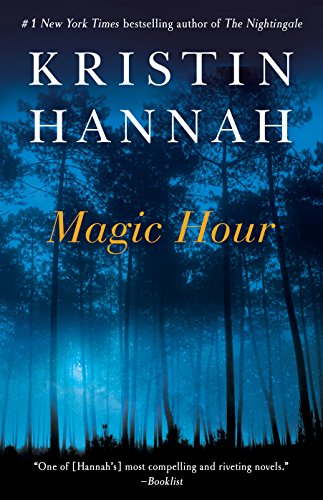
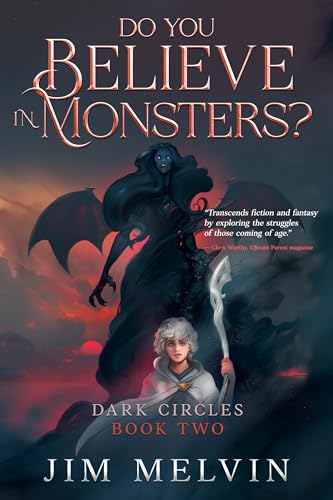
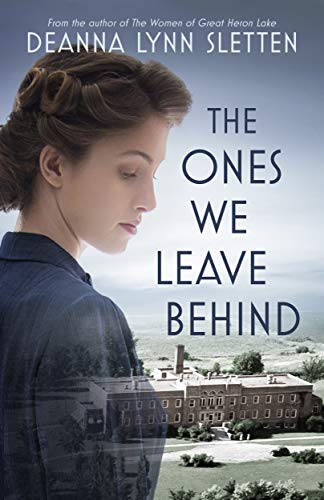

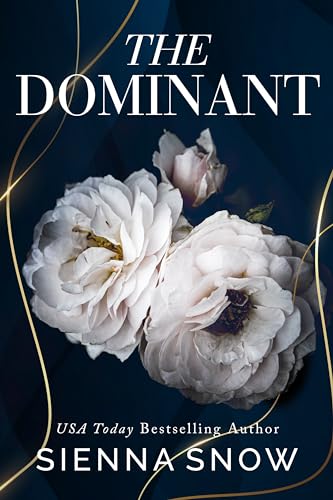


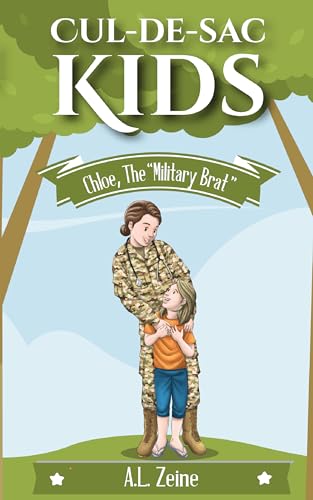
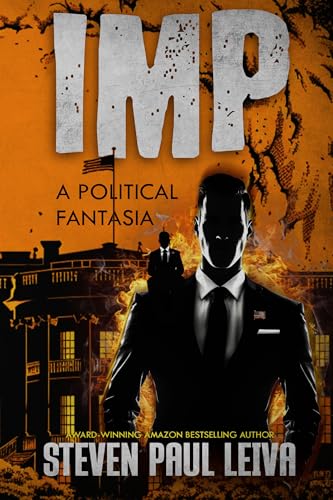

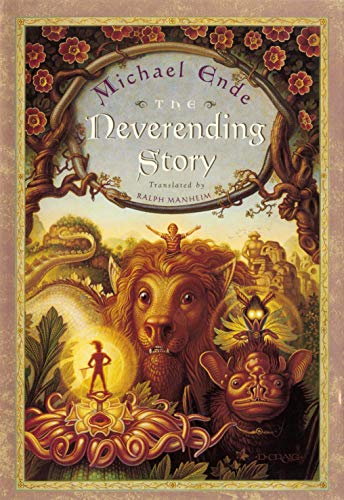







 Loading
Loading













